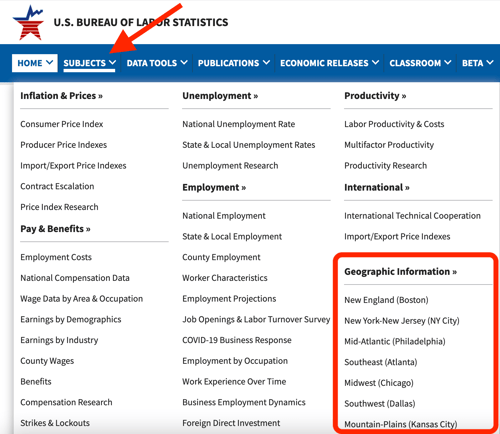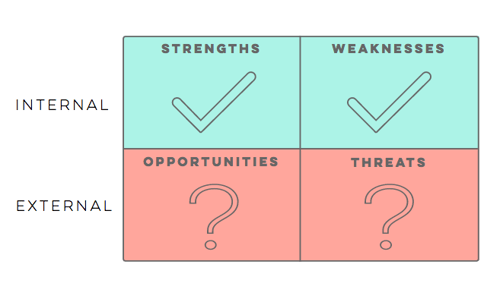What is a product marketer, exactly? The simplest way to explain the responsibility of a product marketer is that they’re responsible for, well, marketing the product. In addition to hiring a product marketer or a product marketing team, there is another resource that can act as a reliable product marketer - your customers. How exactly can your customers be considered as your product marketers? The voice of your customers can do a lot to enhance your product marketing strategy. Here are six ways that you can have your customers help you out as an extension of your product marketing team.
Interview Customers for Case Studies
Case studies are easily the best way to show how your product solves market needs. A case study will help you understand your customers' pain points, and what led them to explore, and eventually purchase your product. Most importantly, you want to know how they use your product. Conversely, you can ask them what they like or dislike about your product, as well as what they hope to see from your product in the future, for internal research that you can bring back to your product team. In addition, you are able to get insights and statistics straight from your customer on how your product has improved specific areas of their business. When potential customers go to your website and see your collection of case studies, they not only get a sense of who you work with but also how you’ve positively impacted similar businesses. These case studies make excellent collateral for your sales team since they come from an external person who has experience using your product, which makes it resonate more with prospects.
Ask Customers for Brief Testimonials
Small but mighty, testimonials are soundbites from your customers that really pack a punch. Similarly to case studies, testimonials are great snippets of positive feedback about your product or service. These can be used to highlight key statistics that measure the impact you’ve had on a customer. Testimonials can be used in a number of ways across multiple different platforms such as on website pages, within content, on printed collateral, and more. A great way to gather customer feedback without conducting an entire case study interview is just by asking for a statement as a follow up to a customer survey, which you can then turn into a testimonial.
Have Your Customers Write Your Content
Customers can build relatable content from a fresh perspective that your in-house writers may not be able to achieve. That’s not to say you’re not creating rockstar content, but having a customer contribute allows your content to be written from your persona’s point of view. Depending on the topic of the blog post, customers can weave their own narrative into the blog post, appealing to other people within your target market. This also allows for industry experts outside of your organization, a.k.a. your customers, to contribute to thought leadership content.
Explore Reviews on Third-Party Review Sites
The beauty of third-party sites is that you not only can see reviews of your own products but also of your competitors’ products, which can teach you a lot about your market. On these review sites, the responses aren’t prompted, so everything is organically produced from those willing to share their feedback. Looking at these reviews can help you when it comes to messaging and positioning of your product. You can see what your target audience - and current customers - are saying about your product compared to your competitors. Having an inside source to your market’s thoughts and needs can help your team immensely when it comes to re-working your messaging, and ensuring you’re resonating with your market.
Create Focus Groups or Customer Advisory Boards
In addition to reading third-party review sites, working with groups of customers face-to-face can help develop and get feedback on your product marketing strategy. Having a select group or groups for beta testing, feedback, and brainstorming sessions is a great way to get an inside look at customer pain points, needs, and product usage. Using what you discover in these customer focus groups can help your entire business. You can learn market pain points, how your product has (or hasn’t) solved these problems, how your customers are using your product, and what they hope to see from future iterations of your product. As well, you can tweak your messaging to ensure you resonate with prospects, based on what your current customers say. Sometimes, product marketers fall victim to the cupholder conundrum - when you talk about everything your product can do, but leave out the part the customers really want - the cupholders.
Partner With Your Customers for Webinars
Depending on your industry and your customer base, webinars with customers may not be something you’ve done in the past. However, if you can get a customer to partner with you on a webinar or another type of co-marketing effort, you can get in front of a whole new audience which may be looking for a solution like yours. A great way to leverage your customers for webinars is by hosting a Q&A on a relevant industry topic or common customer pain point. A webinar interview allows you to chat with someone who actually uses and benefits from your products and can share their insight with prospects in a way that resonates.
At the end of the day, you want to effectively position your product in front of the right audience so that you can sell more. By leveraging your current customers as a product marketing resource, you will be able to gain better market intel, produce effective sales collateral, tweak messaging and positioning, and improve your product features. When your content, messaging, and collateral all have customer influence, you are more likely to attract and retain customers through your product marketing.

Seeing is believing! Check out Crayon for yourself.
Take a Product TourRelated Blog Posts
Popular Posts
-
 The 8 Free Market Research Tools and Resources You Need to Know
The 8 Free Market Research Tools and Resources You Need to Know
-
 6 Competitive Advantage Examples From the Real World
6 Competitive Advantage Examples From the Real World
-
 How to Create a Competitive Matrix (Step-by-Step Guide With Examples + Free Templates)
How to Create a Competitive Matrix (Step-by-Step Guide With Examples + Free Templates)
-
 24 Questions to Consider for Your Next SWOT Analysis
24 Questions to Consider for Your Next SWOT Analysis
-
 How to Measure Product Launch Success: 12 KPIs You Should Be Tracking
How to Measure Product Launch Success: 12 KPIs You Should Be Tracking


